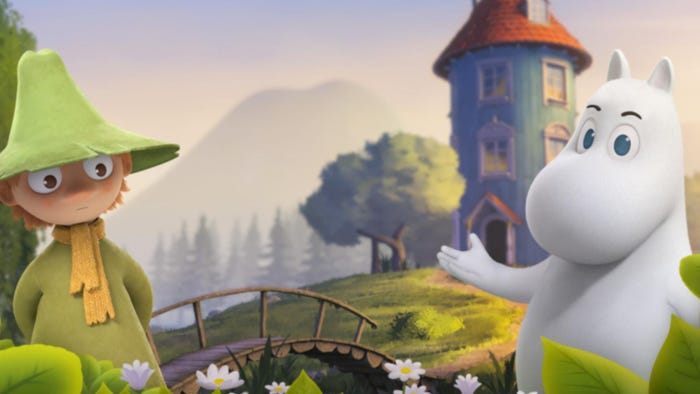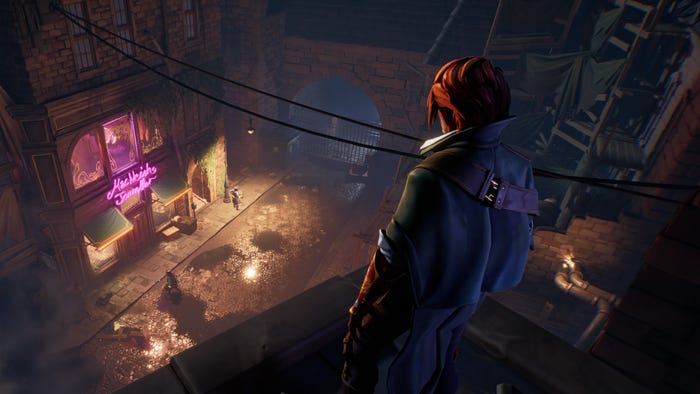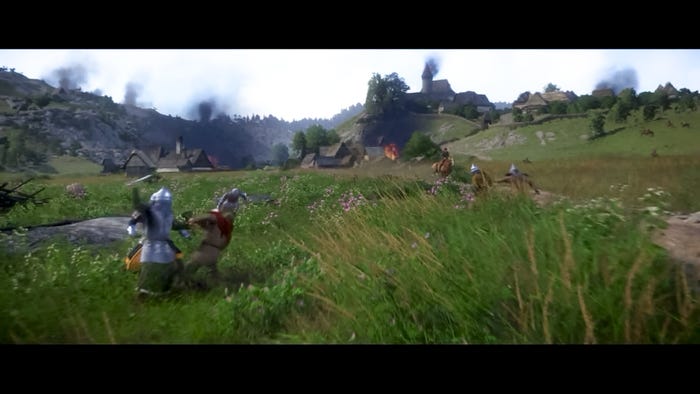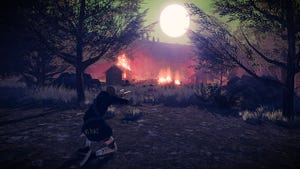We ask Visceral Games' former creative director Wright Bagwell (Dead Space 2), now FarmVille 2's design director, the hard questions about how to fix Zynga-endemic design issues.

Things couldn't get much worse for Zynga right now: Its user numbers are contracting and so is its stock, amid concern about its dependency on the Facebook platform. It's facing an infringement lawsuit from Electronic Arts, its most-muscled rival in the social gaming space it helped pave, and enjoys regular criticism in the press of its business practices and apparent executive philosophies. Desperately in need of some fresh ideas, that its next big launch is Farmville 2, a sequel to a game it's hard to conceive of as requiring one, might seem like a baffling move. In order to rectify its perceived quality issues and broaden its audience, the company needs newness, more polish against the brutal monetization-oriented friction that bottlenecks its userbase. What good can another FarmVille do? Actually, a probable lot, by the looks of things. With the help of Wright Bagwell, yet another EA talent Zynga's managed to snag in the past couple years, Zynga demonstrates it's willing to address some of the elements of its game portfolio that would seem to create the most resistance among savvy fans and long-term players alike.
Meet the design director
Zynga has a history of grabbing up designers from the traditional space, most of whom enthuse at some point or another about the potential they see in social games and their hope to challenge misconceptions. To date, though, we've seen legions of something-Ville click engines, and especially amid Zynga's current challenges, the narrative for Bagwell that the company pitched us -- "the former Dead Space 2 creative director has made a big transition!" -- seemed a bit hard for us to let them get away with. Bagwell was prepared for the scrutiny, though. It's true his rationale for joining Zynga in February 2011 after 11 years at the Redwood Shores studio that became Visceral Games is one we hear a lot from folks who've taken a similar path: As an adult with less hours in the day he's increasingly interested in less time-consuming games, and hopes social play will reunite him with what he enjoyed about the pastime as a child himself. Over the past few years, the rising groundswell of Facebook gaming, with massive Zynga at the head, has created enormous identity conflict in the developer community, and it becomes increasingly hard to believe culturally-aware designers who say they were attracted to Zynga's small-teams feel or its creative culture. Bagwell himself says he was attracted to the company because he saw it as "feisty" and "with a lot of focus." But he isn't in denial about the culture war and how his move may be regarded by his former colleagues in traditional dev: "I'm certainly aware that it exists, and I do know people who wouldn't consider making that change," he says. "I made it gladly and willingly, because I believe in it... I worry a lot less about what my gaming friends think, and I care more about what I really believe is a fun direction."
Do we really need a FarmVille 2?
Although the FarmVille team exists separately from the FarmVille 2 team and will continue to going forward -- Zynga is taking pains to assert it maintains the same level of committment to the original title -- Bagwell's first work at the company involved becoming entrenched with FarmVille, learning its systems with a lens toward the company's goal of doing something refreshing with the largest of its inaugural brands. The most obvious transition for a console developer is the psychological shift from boxed product to live operation, and Bagwell said that idea of a living, breathing, always on "place" inspired him.  Why does FarmVille need a sequel, again? "It's a great question," says Bagwell. "We knew people loved FarmVille... we wanted to see if we could give people a new kind of farming experience. We had a lot of ideas for ways to make a different, next-generation farming game, and we realized that you couldn't just take FarmVille and change it up overnight." According to Bagwell, the better idea was to develop an entirely new farming experience that acts as something of an alternative to FarmVille. Already, though, there's a challenge: Zynga cultivates its userbase across its different games by keeping recognizable touchstones across different products, from naming conventions to visual style and gameplay basics. Adding a product to the portfolio that is called FarmVille, and is kind of like FarmVille only not, seems like a complex proposition: How do you reinvent something when you must be extremely careful about what you can change? "It's a huge challenge," Bagwell admits. "But if there's one thing you learn in the games industry, it's that trying to do something new is incredibly intimidating and risky and scary, but it's also one of the most fun challenges: How do we take a new concept and try to make players understand it and have fun with it quickly?"
Why does FarmVille need a sequel, again? "It's a great question," says Bagwell. "We knew people loved FarmVille... we wanted to see if we could give people a new kind of farming experience. We had a lot of ideas for ways to make a different, next-generation farming game, and we realized that you couldn't just take FarmVille and change it up overnight." According to Bagwell, the better idea was to develop an entirely new farming experience that acts as something of an alternative to FarmVille. Already, though, there's a challenge: Zynga cultivates its userbase across its different games by keeping recognizable touchstones across different products, from naming conventions to visual style and gameplay basics. Adding a product to the portfolio that is called FarmVille, and is kind of like FarmVille only not, seems like a complex proposition: How do you reinvent something when you must be extremely careful about what you can change? "It's a huge challenge," Bagwell admits. "But if there's one thing you learn in the games industry, it's that trying to do something new is incredibly intimidating and risky and scary, but it's also one of the most fun challenges: How do we take a new concept and try to make players understand it and have fun with it quickly?"
Reducing stress and friction, finally
In our in-depth analysis of some of the design elements most challenging to the appeal of a Zynga game, we pointed out that traditional ville-style Facebook games tend to work by overwhelming and overstimulating players with early plenitude and getting them addicted to the reward-driven experience of quests that pile up from all directions -- even as those quests require an increasingly-meaningless inbox exchange of sending and receiving notifications to complete. Another problem was that the games, supposedly "social", instead tend to play on players' fears of anti-social behavior -- like silly wall spam or too many inbox requests -- to get them to spend money. The long lists of unfinished quests, the sprawling, noisy, pop-up littered playfields and the meaningless friend-spam often combine to create an incredibly stressful experience, the stress of which can only be alleviated through spending on microtransactions. Ultimately players are addicted to a fundamentally unsatisfying experience in which they unwittingly act as Zynga's advertising and monetization engines. From our demo of FarmVille 2, though, it looks like alleviating that stress and friction was one of Bagwell and his team's key objectives from the get-go. A little house with a picket fence sits gently by a long dirt road, clean linens sway on a clothesline while amber grain waves nod in the breeze in a nostalgic, soothing vision of Americana. "I can tell you from my perspective what I did with this game was say, hey, I want to build a game that doesn't fall into those traps," he says. "We set out to the start to think about ways that we can shake up what people know about these games...These games are about a relaxing break," Bagwell asserts. "One of the visions I had from the beginning is that this should always remain something that feels like the best 10 minutes of your day," he adds, pointing to alternatives to the traditionally-frenetic object collection and item-clicking that makes preceding games obsessively-engaging. "This is not supposed to be something where you lean forward and have to get pumped up."
Going for actual socialization, at last
Bagwell didn't just want to make the game board feel peaceful and soothing, with pleasant ambient sound effects rather than the bright, jangly music of other Zynga games ("a lot of people do" mute the music, metrics reveal). He also wanted it to look vital, tactile and alive. "Things should be fun to touch," he says. He's also hoped to address the frustrating superficiality of other games' visiting mechanic, where the actions you perform on your friends' properties don't necessarily come to bear on gameplay in a realistic way. You can exchange gifts whether you possess the requested number of items or not, meaning "helping" your friends means little more than clicking "accept" in a user interface.  in FarmVille 2, players can implement their friends' avatars as farm helpers in a much more realistic way, allowing players to direct their friend's labor and distribute the workload. Conscious of the mindless rote of the inbox-based gift exchange, Bagwell wanted as many of the social interactions to take place on the actual game board as possible. "We wanted to elicit a very specific kind of emotional feeling in this game," Bagwell explains passionately. "We wanted players to look at it as this living thing that feels happy to see me, and reacts to my touch... we went for a palette and style of art direction that really makes you want to smile, that feels relaxing and happy and colorful... a more innocent time."
in FarmVille 2, players can implement their friends' avatars as farm helpers in a much more realistic way, allowing players to direct their friend's labor and distribute the workload. Conscious of the mindless rote of the inbox-based gift exchange, Bagwell wanted as many of the social interactions to take place on the actual game board as possible. "We wanted to elicit a very specific kind of emotional feeling in this game," Bagwell explains passionately. "We wanted players to look at it as this living thing that feels happy to see me, and reacts to my touch... we went for a palette and style of art direction that really makes you want to smile, that feels relaxing and happy and colorful... a more innocent time."
No more energy system
Perhaps the most eyebrow-raising change is that FarmVille 2 dispenses with the energy system that Zynga helped make industry-standard on Facebook. The energy system, which gives a cost to every action, is a way of limiting the number of actions that players can perform in a day, thereby creating the sort of friction that is central to making social games just unpleasant enough to hook their audiences. Everything in FarmVille 2, from growing crops to tending animals and crafting, requires water, of which players can only gather so much in a day. That takes the focus off constraining interaction at random and instead encourages players to set goals and plan more conscientiously about what they want to build and achieve on their farm. With the coins they earn from selling crops and items -- no longer are coins bouncing about in response to every action, but are instead logical returns for farm-grown goods -- players can add more water wells to their farm, increasing the supply at their disposal. Bagwell also removed some of the sense of penalty that compels players to check in to their game every so often lest animals or crops suffer and wither. Untended livestock simply won't produce goods, but they won't become unhappy, either. None of them produce meat, either -- cows offer milk and sheep wool, while horses produce horseshoes. Animal feed is made from the player's own produce in another direct correlation aimed at making the FarmVille universe seem like a believable ecosystem, rather than just a clickable item list.
More ecosystem, less overwhelm
And to address the issue of players getting overwhelmed by neverending lists of multi-part quests, Bagwell's come up with a new way to offer guided gameplay. Each day, a village grocer places an order at the farm -- intuitively based on the tasks players are already performing and the items they are already working to grow, to avoid giving players the sense of hopelessness inherent in getting quests based on items they can't even begin to gather. Furthermore, the player has a few choices at a time of what grocer order to try and fulfill, so they can select their own level of challenge on a daily basis. And while characters in the FarmVille 2 world will still provide quests geared at teaching players how to do new things in the game -- Zynga knows its users love getting objectives and 'win' conditions -- the number of quests a player can receive at once will be limited, Bagwell says.  "I put a stake in the ground and said, 'we will not overwhelm you with tasks,'" he says. "I want people to feel like they have enough direction -- they love quests... and we want to make sure they remain happy. But we want to feel flexible, so it's always giving players valuable things to do." "We tried to take the best of the -ville games, and then fix the issues we saw were things we heard from our players," Bagwell states. Oh, yeah -- and thanks to Flash 11, FarmVille 2 will offer a big first for Zynga's Facebook gamers: The ability to right-click, which makes the controls on the board much more flexible and intuitive. Realizing what makes its previous portfolio of games stressful and hard to love and actually aiming to fix them on a deep level through FarmVille 2 marks a promising attention to detail for a company often criticized for appearing to care more about metrics than the quality of its players' experiences. Bagwell says experience is all he's ever cared about in his career. The company says it plans to ramp up marketing over the next few weeks. Although its games are usually only available in English, FarmVille 2 will release in 16 languages, Zynga says. An app page for FarmVille 2 is already in place. "I can't speak for Zynga as a whole and what we're doing strategically. I love game design," he says. "I'm grateful I had the opportunity to come in and do this: Build the game that I really feel like players will fall in love with... I wanted to build a game that continues to feel rewarding over time." A game that keeps people engaged over the long term is exactly what Zynga needs right now.
"I put a stake in the ground and said, 'we will not overwhelm you with tasks,'" he says. "I want people to feel like they have enough direction -- they love quests... and we want to make sure they remain happy. But we want to feel flexible, so it's always giving players valuable things to do." "We tried to take the best of the -ville games, and then fix the issues we saw were things we heard from our players," Bagwell states. Oh, yeah -- and thanks to Flash 11, FarmVille 2 will offer a big first for Zynga's Facebook gamers: The ability to right-click, which makes the controls on the board much more flexible and intuitive. Realizing what makes its previous portfolio of games stressful and hard to love and actually aiming to fix them on a deep level through FarmVille 2 marks a promising attention to detail for a company often criticized for appearing to care more about metrics than the quality of its players' experiences. Bagwell says experience is all he's ever cared about in his career. The company says it plans to ramp up marketing over the next few weeks. Although its games are usually only available in English, FarmVille 2 will release in 16 languages, Zynga says. An app page for FarmVille 2 is already in place. "I can't speak for Zynga as a whole and what we're doing strategically. I love game design," he says. "I'm grateful I had the opportunity to come in and do this: Build the game that I really feel like players will fall in love with... I wanted to build a game that continues to feel rewarding over time." A game that keeps people engaged over the long term is exactly what Zynga needs right now.
About the Author(s)
You May Also Like








